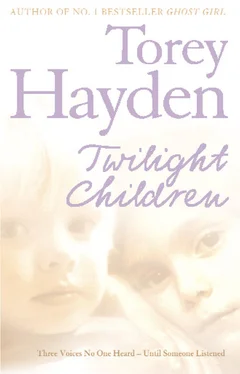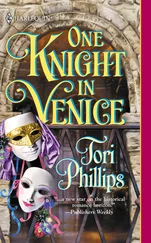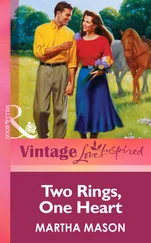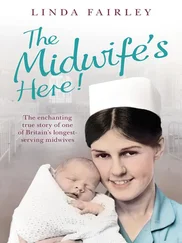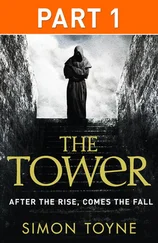She hesitated. “I’m not a very good draw-er.”
“That’s okay. They can just be stick figures, if you want. You can make them any way that’s easy for you.”
“Like bubbles? Instead of sticks, can I draw them round, like bubbles?”
“If that’s what you want.”
“Fish!” she said with sudden animation. “I draw really good fish. I figured out this way. Let me show you.” She picked up an orange crayon. “See? You make a circle. Then you draw a little triangle on one end with the point sticking against the circle and that’s the tail. See?” She made several more fish along the side of the paper. “Can I make them fish?”
“You decide,” I replied.
But she didn’t make fish. And she didn’t make stick figures. Instead, Cassandra dropped the crayon and took a pencil. She began to draw very small, very carefully proportioned people. First a man, then a girl, then a smaller girl, then a woman. A pause. Cassandra considered the picture. Then she added another figure next to the mother. This was a second man. Then she added a third man. Another pause.
Everything thus far had been done in pencil. Indeed, she’d chosen a very sharp, hard-lead pencil and so the drawings were quite faint. She then put the pencil down and reached over for the box, pulling it closer. Looking through, she picked out different crayons and set about placing her family in a pleasant scene of grass, blue sky, and bright sunshine. She worked carefully, coloring in the grass after drawing the lines and then the sky. She assiduously avoided coloring over the orange fish so that it looked almost as if they were balloons in the air. She pressed hard when making the sun, turning it waxy yellow, many of the rays extending out over the crayoned blue of the sky.
While Cassandra had been careful not to color over her fish at the edge of the paper, she had had no such compunctions about coloring over the family. They were hardly visible through the blue she’d used for the sky.
“There,” she said, then paused to regard the picture. “No, wait.” She reached out and took up a black magic marker. Carefully she penned in a smiling face on the sun. “That’s better. That’s a happy picture now, isn’t it?” Then she continued with the black marker and drew a strange little blobby shape in the sky not far from the sun. It had three protrusions, making it look rather like a clover leaf without the stem.
“You’ve worked hard on that. Can you tell me about it? Who are these people in the family?”
“Welllll,” she said in a slow, drawn-out voice, “that’s my dad.” She pointed to the first faint figure. “That’s my sister Magdalena. And that’s my sister Mona. And that’s my mom. And that’s Daddy David. And that’s Uncle Beck.”
“And where are you in this picture?” I asked.
“I’m not in this picture. Am I supposed to be in this picture? I thought you said you wanted a picture of my family.”
I nodded.
“You wanted me in the family?” she asked.
“Well, if you wanted to draw everyone in your family, it might include you, mightn’t it? … but then again … however you see it, that’s good. There isn’t a right or wrong way of doing it.”
“Everyone? You wanted everyone? I didn’t know you said everyone. I didn’t know you meant everyone.”
Cassandra reached over and picked out an assortment of crayons – red, yellow, blue, green. Down in the right-hand corner of the picture she began to draw several small snakes, all with smiley faces. She made about ten of them of different sizes.
“This is becoming quite an intricate picture,” I said. “Can you tell me about these?”
“This is Mother Snake and this is Father Snake and these are the kid snakes. And this is Minister Snake. And this is Cowboy Snake. And this is Fairy Snake. They’re my brothers and sisters, these ones. He’s my brother and he’s my brother and this one’s my sister.”
“Ah,” I said. “Your mom only told me about your sisters Mona and Magdalena.”
“These are my other brothers. In my other family. From when I was abducted. I lived in a whole other family then, and these are my brothers and sisters from there. I called them ‘Minister’ and ‘Cowboy’ and ‘Fairy’ because that’s how they liked to dress up. Well, not him. He really was a minister. He was a grown-up. Like seventeen, I think. But Cowboy and Fairy were my age. Well, Fairy was younger. She was three. I took care of her.”
“I see. Your mother didn’t mention your other family.”
Cassandra grinned then. It was an openly saucy expression. “Maybe she doesn’t know.”
Or maybe I don’t know , I was thinking. There was something too playful about her behavior, making it feel manipulative to me. I was getting a sense of smoke and mirrors about Cassandra, that she was astute at giving what she surmised I wanted so that I never noticed what wasn’t being offered.
“And that’s me, there,” she said and pointed to the clover-shaped blob in the sky.
“Ah,” I said, “so you are in the picture now?”
“Yup.” She looked up at me and smiled. “But I’m up there ’cause I’m an alien.”
I’d been working on the unit almost two years. Feeling frustration with the attitude of the administration in Washington toward special education and foreseeing the inevitable cutbacks and job losses that would result from administration policy changes, I had decided to take a break from teaching. Some years earlier, I’d completed my psychology credentials, so this seemed the right time to move in that direction. My intention had been to join a small clinic where a friend of mine worked. It was located in a city I had lived in previously, a city I knew and loved well and where I already had a good social network. What had attracted me most, however, was a chance to work with the clinic’s director. He not only had a formidable reputation in child psychiatry, which was reason enough to want to learn from him, but he was also a skilled administrator, known for his creative thinking. Breaking free from the often restrictive attitudes of psychiatry, he had sought to set up the clinic with a more holistic approach, drawing together professionals from several allied fields – child psychology, psychiatry, pediatrics, social work – to work together in a broad, cross-disciplinary manner. This ability to “think outside the box” appealed to me greatly.
How I’d left the small town where I had been teaching with the intention of taking up a position in that wealthy, well-funded, broad-minded private clinic and ended up instead working in the claustrophobic world of a closed psychiatric crisis and assessment unit for children in a metropolitan general hospital was somewhat of a mystery even to me. It had involved one of those encounters one can only write off later as “fate,” when a colleague of a colleague contacted me late one Sunday afternoon, saying something about being familiar with my former project in elective mutism and would I be willing to give an in-service to staff at the hospital. While on the unit to do the in-service, I found out they were desperately looking for a specialist in psychologically based language problems. I was not such a specialist, but I was free for a few months, since times had not quite coordinated between the end of the school year and the opening of the position at the clinic. I said if they were interested, I’d be willing to give it my best shot. They were and I did. And months zoomed by. The position at the clinic came and went and I remained at the hospital.
It was a good choice. No doubt the clinic would also have suited me well, and I still had occasional idle dreams of switching over at some later date, but I loved the gritty, front-line feel of working in a hospital. We were a shortterm facility, designed primarily for diagnosis and assessment, as well as acute crisis intervention, and as a county-funded institution, many of the cases referred to us came from the poor under-belly of society. The continual struggles for enough time, enough money, enough choices never went away, lending a certain frisson to the work and provoking among the staff an attitude akin to that of comrades-in-arms in a MASH unit. Like a good political debate, this kind of edgy atmosphere stimulated me. I enjoyed, too, the flexibility of my position, which allowed me to continue liaising with many of my patients long after they had left the hospital unit and returned to their homes and schools, and I enjoyed being a “language specialist,” of seeing the many variations of one presenting problem.
Читать дальше
